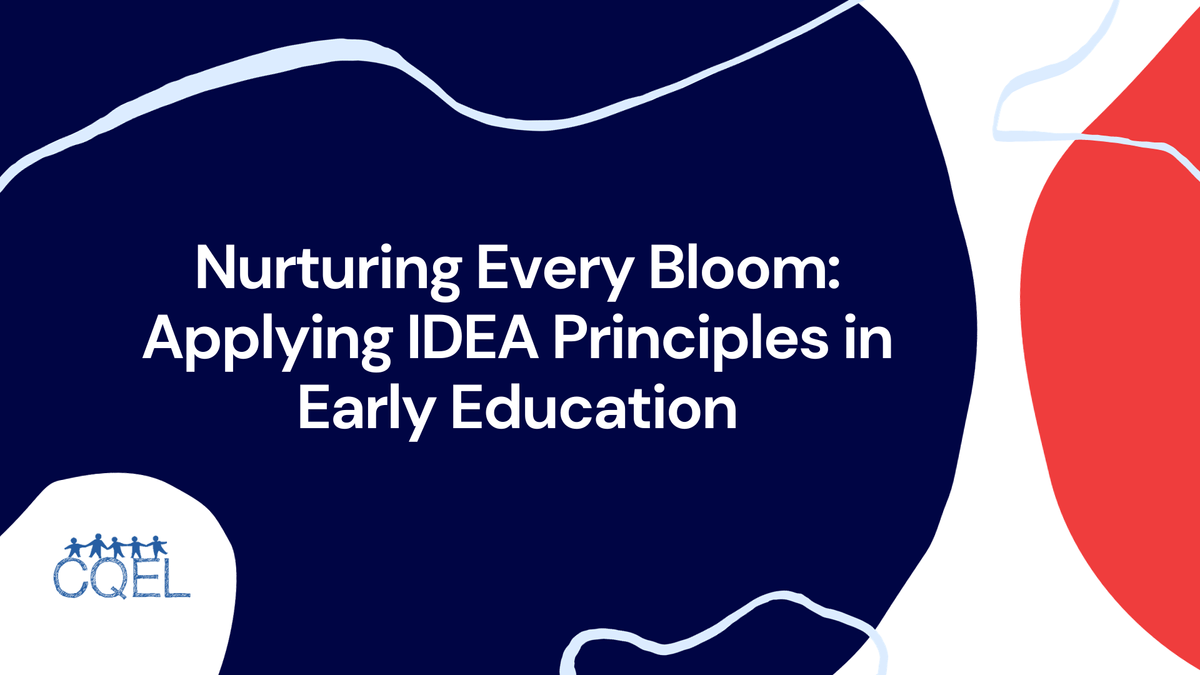Nurturing Every Bloom: Applying IDEA Principles in Early Education
Unlock every child's potential! Early Ed educators, discover how the Individuals with Disabilities Education Act (IDEA) empowers you to nurture ALL little minds. Learn inclusivity tips, celebrate diverse talents, & embrace collaboration. Resources & advocacy tools included! Bloom beyond limitations!

The early years are a magical time of blossoming potential, yet some buds require extra care to flourish. That's where the Individuals with Disabilities Education Act (IDEA) steps in, providing a nurturing framework for children with disabilities to shine alongside their peers. So, how can early childhood educators, the gardeners of these precious blooms, translate the principles of IDEA into everyday practices?
Embrace Inclusivity
Every child deserves to feel valued and included. Design your classroom as a kaleidoscope of diverse abilities and learning styles. Celebrate differences, cultivate empathy, and modify activities to ensure all little explorers feel like they belong.
Individualized Education Programs (IEPs)
These are your roadmaps to success. Collaborate with families and specialists to craft personalized IEPs that cater to each child's unique needs and strengths. Regularly analyze progress, adjust strategies, and ensure the path to learning is paved with joy.
Early Intervention, Big Impact
The early years are a critical window for intervention. Be alert to developmental delays, conduct regular screenings, and implement early intervention strategies the moment concerns arise. Timeliness is key to unlocking a child's full potential.
Positive Learning Environments
A classroom should be a safe haven, not a battlefield. Build trust, cultivate positive relationships, and foster a sense of belonging. Address challenging behaviors with understanding and guidance, not judgment. Remember, positive interactions are the fertilizer for happy blossoms.
Collaboration is Key
You're not alone in this nurturing journey. Work closely with families, therapists, and specialists to create a united front. Share resources, exchange ideas, and celebrate milestones together. A strong support system strengthens every stem.
Data-Driven Decisions
Don't rely on guesswork. Regularly assess progress, analyze data, and adjust strategies based on each child's unique learning trajectory. Data becomes the compass, guiding you towards effective interventions and blooming achievements.
Celebrating Diversity of Talent
Remember, disabilities are not deficits, but different abilities. Some children bloom through auditory learning, while others shine through movement or visual cues. Cater to diverse learning styles, acknowledge strengths, and celebrate every unique way of blossoming.
Advocacy for All
Be a voice for your little explorers. Advocate for resources, professional development, and accessible learning environments. Remember, your passion can change policies, shift mindsets, and create a world where every child has the opportunity to bloom.
IDEA is not just a set of regulations; it's a philosophy of inclusivity, support, and individualization. By weaving its principles into the fabric of your early education practice, you become not just a teacher, but a gardener, nurturing a vibrant garden where every child, regardless of abilities, has the chance to blossom into their most radiant selves.
Additional Resources:
- U.S. Department of Education, Office of Special Education and Rehabilitative Services: https://www2.ed.gov/about/offices/list/osers/osep
- Council for Exceptional Children: https://exceptionalchildren.org/
- Early Childhood Technical Assistance Center: https://ectacenter.org/
Let's cultivate a world where every child, with or without disabilities, blooms under the nurturing sun of inclusivity and individualized support. Together, we can create a garden where all flowers, in their unique beauty, create a breathtaking landscape of potential.
